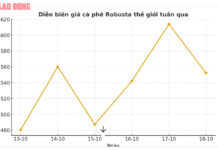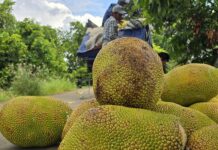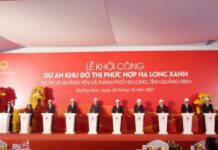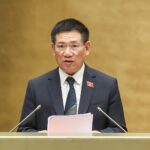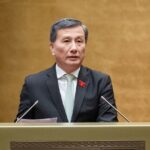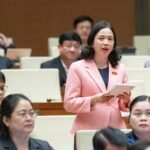In the afternoon of November 29, the National Assembly discussed the draft Law on Management and Investment of State Capital in Enterprises at the hall.
Overlapping Mechanisms in State-owned Enterprise Management
Speaking at the discussion, Deputy Hoang Van Cuong (Hanoi Delegation) stated that state-owned enterprises currently hold a large amount of capital and assets but operate less dynamically, with lower efficiency than private enterprises. The reason lies in the inappropriate, overlapping, and restrictive management mechanism for state-owned enterprises. Although the mechanism is tight and restrictive, the leakage of invested state capital is still not detected in a timely manner, and when detected, the responsibility cannot be determined. By the time the individual is held accountable, the money is already lost.
“I strongly agree with the necessity to fundamentally amend this law to create a new management mechanism, clearly defining the rights and responsibilities between the management of the state capital owner’s representative agency and the governance of the enterprise. This will provide a more open mechanism for state-owned enterprises and an appropriate mechanism to effectively manage the state capital invested in enterprises. The principle is that wherever there is state investment, there must be a mechanism to monitor and manage that money,” said Deputy Cuong.
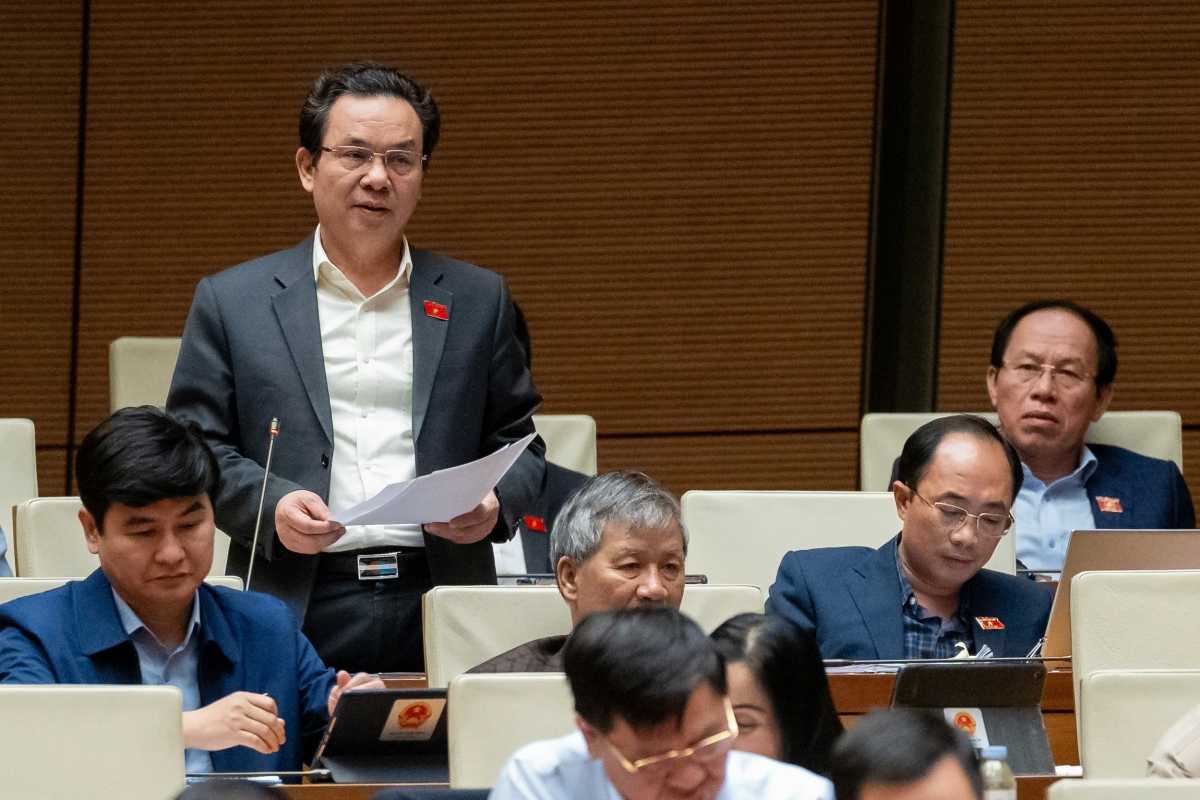
Deputy Hoang Van Cuong – Hanoi Delegation
Following the principle that where there is state investment, there must be a mechanism to monitor and manage that money, Mr. Cuong suggested expanding the scope of adjustment and the subjects of application of the law. Accordingly, it should not only focus on enterprises holding over 50% of the charter capital but also extend to those holding less than 50%, F2 and F3 enterprises, etc.
Especially regarding the state capital representative, it should be amended to suit the context, instead of a group of people, the state capital owner’s representative agency should appoint or hire a representative who has the right and is responsible for managing the capital. The representative should not only be assigned and fulfill targets and plans but also have full authority in organizing the apparatus and selecting personnel based on standards.
Regarding profit distribution, Mr. Hoang Van Cuong assessed that the current profit distribution mechanism according to the draft will not encourage enterprises to do business well and make more profits because they can only deduct a maximum of 3 months’ salary to contribute to the reward fund and the welfare fund.
“If an enterprise operates inefficiently but sets a high salary, there will be no profit left to contribute to the reward and welfare funds. However, in reality, employees still receive high monthly incomes. On the contrary, if enterprises do business well but set low salaries, when they make a profit, they are only allowed to deduct 3 months’ salary for rewards, so employees still have low incomes,” analyzed Deputy Cuong.
Therefore, according to the deputy, profit distribution should first be used to fulfill the assigned targets and plans, such as increasing capital, making budget contributions, establishing accumulation funds for development, establishing reserve funds, and the rest will be distributed to employees. In this way, employees will be rewarded according to the results, with more profits leading to higher rewards and fewer profits resulting in lower rewards.
Managing State Capital Wherever It Flows
Expressing her opinion at the discussion session, Deputy Bui Thi Quynh Tho (Ha Tinh province Delegation) said that the draft law applies to objects with state capital holding over 50% and does not specify those with state capital holding less than 50%.
The deputy gave an example of a joint-stock company with state capital accounting for 49%, and the rest is divided among 5 other major shareholders, each holding less than 10% of the shares. In this case, state capital will be dominant, but without clear regulations, it is unclear who will be responsible for management, execution, and monitoring. The female deputy wondered how this portion of state capital would be managed and used, how the profits generated from the investment would be handled, and what the sanctions would be for violations.
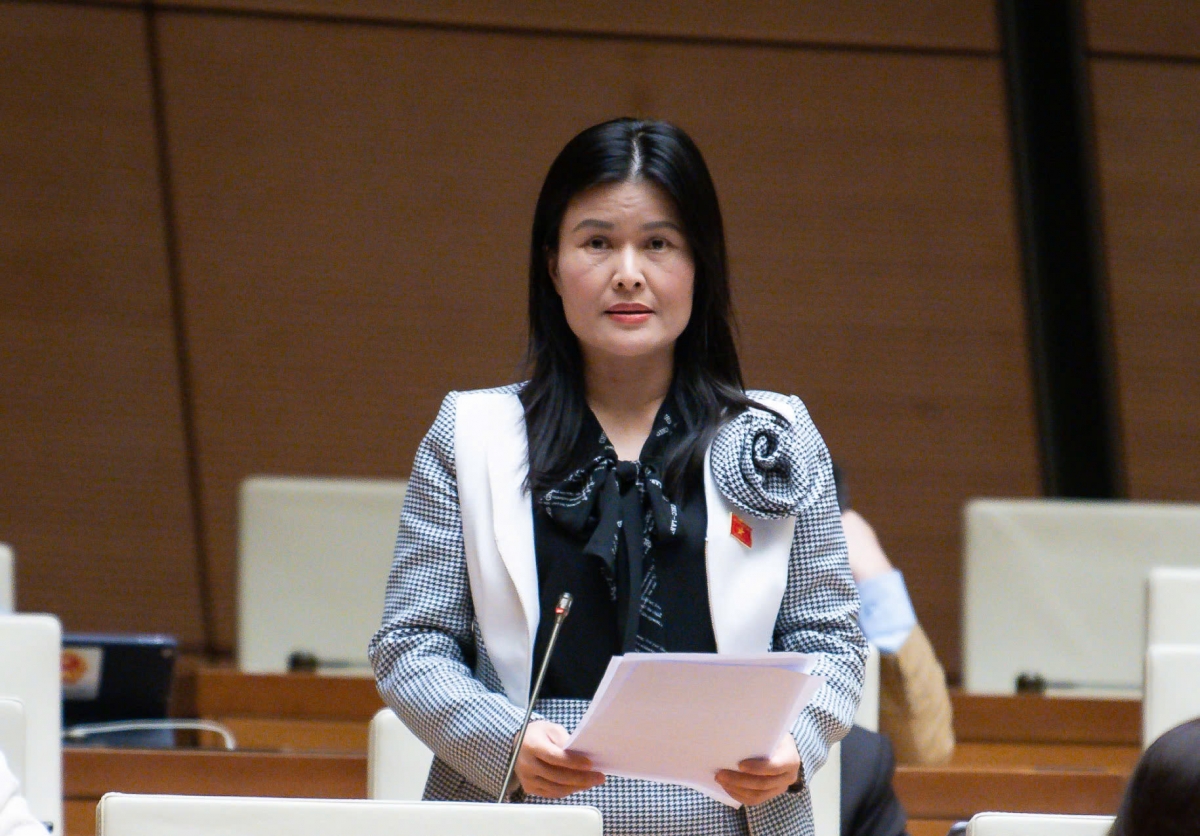
Deputy Bui Thi Quynh Tho – Ha Tinh Province Delegation
Therefore, the deputy “proposed to expand the scope of management to enterprises with less than 50% state capital and stipulate the principle of managing the state capital flow wherever it goes. The state will monitor and manage it there, based on the principle of the owner’s equity ratio. Only in this way can we ensure financial management principles.”
Another issue of concern to the deputy is that the draft law lists 15 tasks, powers, and responsibilities of enterprises in management and administration, compliance with legal regulations, and some tasks on law enforcement. However, she believed that it is necessary to supplement the regulation on the enterprise’s responsibility for the output from the use of state capital for business. Accordingly, except for enterprises implementing the state’s public objectives, enterprises investing in business must be responsible for the efficient use of state capital, ensuring economic benefits (excluding cases of force majeure such as natural disasters, calamities, or economic, political, and social shocks).
“If there is no regulation on this responsibility, enterprises only need to preserve the capital to meet the requirements,” said Deputy Bui Thi Quynh Tho.
Regarding profit distribution, according to the deputy from Ha Tinh province, the draft law stipulates the distribution for enterprises with 100% and 50-100% state capital. However, compared to Law 69/2014, it does not specify whether it is profit before or after corporate income tax.
The deputy suggested clearly defining the profit for distribution as profit after corporate income tax. At the same time, it is necessary to supplement regulations related to enterprises with state capital investment of less than 50% and how their profits will be distributed.
The Congress Proposes the Dismissal of the Minister of Finance and the Minister of Transport
On November 27, Prime Minister Pham Minh Chinh proposed to the National Assembly the dismissal of Ho Duc Phoc, Deputy Prime Minister, from his concurrent position as Minister of Finance, and Nguyen Van Thang from his position as Minister of Transport.
The Mineral Resources Act: Unveiling a Legislative Landmark
On November 29, under the direction of Vice Chairman Nguyen Duc Hai, the National Assembly voted to pass the Law on Geology and Minerals. The electronic voting results showed that out of 448 delegates present, 446 voted in favor, accounting for 93.11% of the total number of delegates. Thus, with a high approval rate, the National Assembly has officially passed the Law on Geology and Minerals.
Essential Goods Cannot Be Subject to Luxury Tax
Many members of the National Assembly have proposed that special consumption tax should not be levied on air conditioners and pickup trucks. However, they emphasized the need for stringent measures to be implemented for effective taxation.



